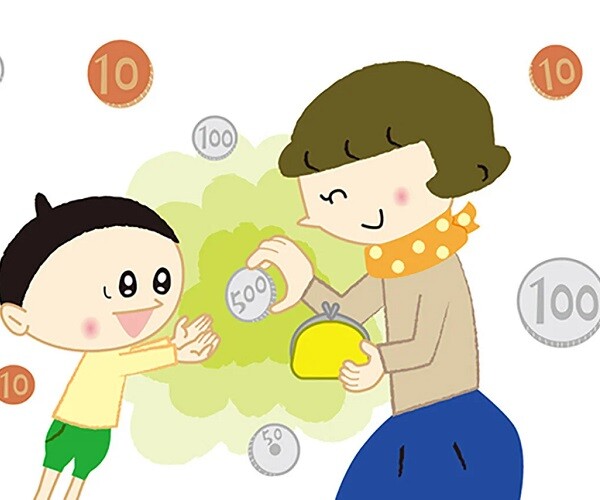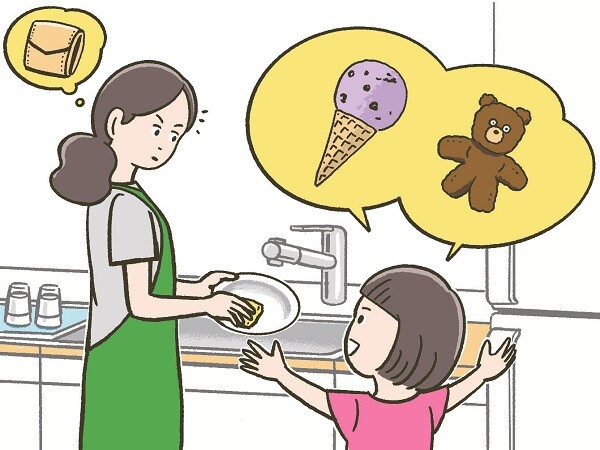Some parents believe that children don’t need to worry about food and drinks as their parents will buy them anything, so they don’t need allowance. However, other parents argue that children should have their own spending money.
The difference between children who receive an allowance and those who don’t is beyond our imagination. On this matter, a psychologist suggests that children should be given an allowance because she believes that children will have their own material needs in life, and this will help them develop financial management skills from a young age.
For many people, if children never have spending money, they tend to be less financially literate and may not even know how to spend money wisely. They may struggle with budgeting and saving as adults. In contrast, children with an allowance will learn to weigh their needs and wants, developing better decision-making skills.
Thus, there is a clear difference between children who receive an allowance and those who don’t.


Different Levels of Money Desire
In reality, the less spending money children have, the more they crave it. For example, Xiao Chuan has had an allowance since he was very young, so he doesn’t value money highly as it has always been readily available. He tends to spend freely without much thought about saving or financial management.
On the other hand, Wang Mao has never had an allowance, and he always feels a longing and curiosity about what money can bring. Whenever he sees his friends buying things they like or engaging in fun activities, Wang Mao feels deprived and envious. This is quite normal as humans tend to “cherish” what they can’t have more.
This difference reflects the children’s psychology and influences their perception of money’s value in life.

Different Levels of Money Desire.

Varied Consumption Concepts
Those who don’t lack money tend to be more rational consumers. They buy what they need and don’t place too much importance on unnecessary items or choose not to buy them.
This not only helps with personal financial management but also builds sustainable consumption habits. They understand that money has value, and spending it wisely brings long-term benefits rather than instant gratification.
However, a child without an allowance is more likely to develop a “revenge spending” mentality when they finally have money, leading to a desire to buy everything to make up for their past deprivation.
Think back to when we first received our salary; we felt a sense of freedom, which often led to wasteful spending. This mentality can influence our money management and lead to poor financial decisions in the future.
Additionally, it can create a vicious cycle where one never feels truly satisfied. Each new purchase brings only temporary joy, followed by a sense of deprivation and increased longing.

Varied Consumption Concepts.

Varied Money Control Abilities
Children with an allowance tend to be more rational in their spending. They have a relatively clear understanding of the nature of allowance money and, therefore, manage it more objectively. They don’t feel confused about what to do with the money they receive.
However, children without an allowance may struggle to develop robust financial management skills due to a lack of exposure to money.
Overall, giving children an allowance seems like a good option.
However, it’s essential to consider the benefits this will bring to the child. When giving an allowance, parents should also teach their children how to manage it wisely.

Helping Children Develop a Healthy Perspective on Money
According to experts, children should gradually gain knowledge about money management before the age of 12.
Parents should set a good example and help their children develop a healthy perspective on money. This includes understanding what money is, its source, its purchasing power, and its value.
By doing so, children will be able to view money objectively and reduce the likelihood of developing unhealthy spending habits.
Pay Attention to the Appropriate Amount of Allowance
When giving an allowance, parents should consider the timing and amount. For example, younger children in elementary school should receive a smaller amount since they have a limited understanding of money and less control over their spending. A reasonable amount could be 100,000 VND per week.
As children progress to middle or high school, their material needs increase, and their money management skills improve. Therefore, parents can give them a higher allowance, ranging from 200,000 to 300,000 VND per week.

Helping Children Develop a Healthy Perspective on Money.
Support Children in Budgeting
When giving an allowance, parents should also help their children plan their spending. This will enable children to understand what they can do with the money and make thoughtful choices.
For example, if a child receives 100,000 VND per week but spends 60,000 VND on a comic book, they will need to adjust their spending accordingly and learn to prioritize.
This will improve their financial management skills and benefit them in the long run. It will also help them view money objectively and improve their overall quality of life.
Therefore, giving children an allowance aims to meet their daily consumption needs, cultivate a healthy perspective on money, and instill values.







































